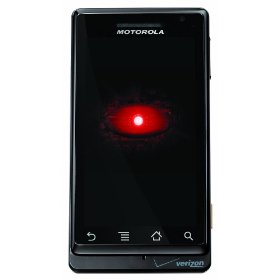 "Where I am should not limit what I can do or how I get it done," asserted Dr Andrew Barbash, Neurosciences Director at Maryland-based Holy Cross Hospital during his keynote presentation at the mHealth Initiative's event in Washington D.C. Barbash's presentation, entitled, "Integrating mHealth in a Physician’s Practice" was a fast-paced talk that described Barbash's own adoption of mobile applications at his facility. Barbash was quick to point out that in some cases he did not wait around to ask for permission from his higher ups.
"Where I am should not limit what I can do or how I get it done," asserted Dr Andrew Barbash, Neurosciences Director at Maryland-based Holy Cross Hospital during his keynote presentation at the mHealth Initiative's event in Washington D.C. Barbash's presentation, entitled, "Integrating mHealth in a Physician’s Practice" was a fast-paced talk that described Barbash's own adoption of mobile applications at his facility. Barbash was quick to point out that in some cases he did not wait around to ask for permission from his higher ups.
"Pay me for my time and my efficacy," Barbash said. "I can find and pay for whatever tools I need to get the task done. Nobody told [physicians] to go out and buy iPhones or... Treos. Mobile health and the telecommunications industry is making it easy for us to get the tools we need. [That's true for] patients too. The healthcare industry needs to get out of the way in some cases."
Barbash flashed his Verizon Wireless-powered Google Droid phone while at the podium: "I am a big Google fan. They understand the nature of search, which is the process that underlies all of thought. That's [another] long discussion, but for a neurologist, it's very interesting. I figured I would get shot for this, but I loaded Google Chat [an instant messaging application] on all [my department's] physicians' computers. Now, my phone doesn't [ring] anymore. I get a text message."
Barbash has found that using an instant messaging application like Google Chat is much more convenient than receiving phone calls from people. The asynchronous messaging allows him to determine how important the call is, but IM apps like GChat also allow him to display his availability to his team. During his keynote presentation, Barbash said that his status was set to "unavailable." That way his team knew not to attempt to contact him and to reach out to someone else instead.
"The phone has become a remote control device for your availability," Barbash said. "That's a complete and utter game changer for practice. Most doctors don't even know we can do this."
Barbash sees mobile's role in practice management as a big opportunity for nurses, especially. Mobile app that offer telepresence and mobile access to electronic medical records can create a new class of nurses, which he called remote virtual nurses. A more experienced nurse can work from home and be the point of contact for other clinical workers, Barbash said. That way the number of people participating in the care process is enhanced and made more efficient, he argued.
"We can solve this now," Barbash said. "The technology is consumerized and available now. We need to educate ourselves first but then we need to find the willpower to do it."

















